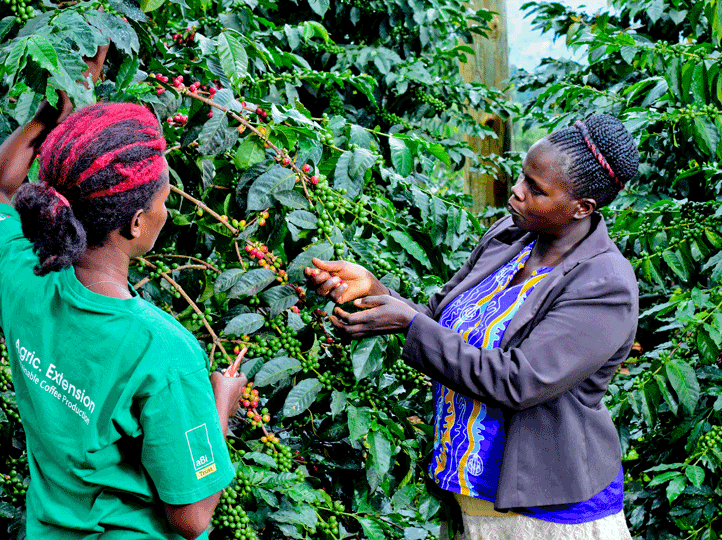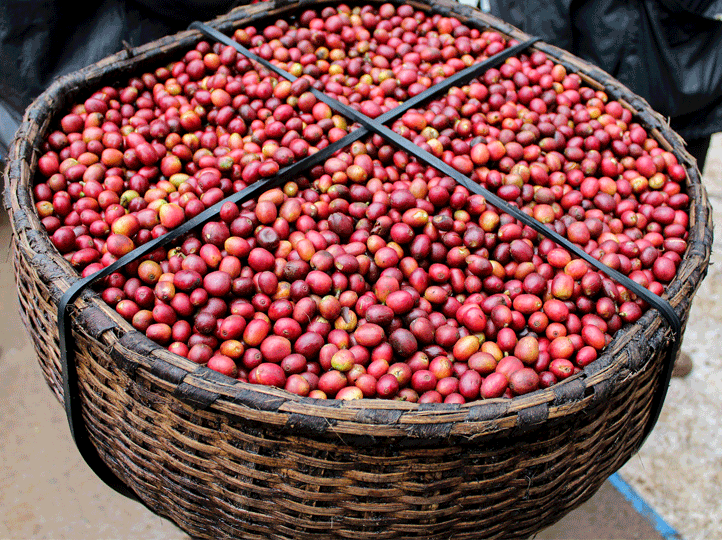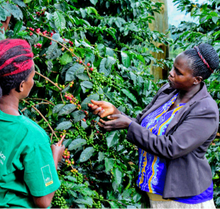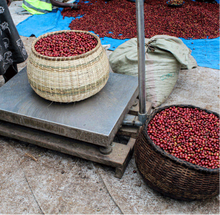UGANDA (COFFEE KING)
- Vendor
- Broadway Coffee Roasters
- Regular price
- £11.00
- Sale price
- £11.00
- Regular price
-
- Unit price
- /per
Adding product to your cart
This organic natural was cultivated at 1950
masl in the sironko mountainous region.
Expect notes of Banana candy, plum, florals,
rum & raisin with a creamy mouthfeel.
About This Coffee

The story goes that during a famine centuries ago, the tribes moved east and stumbled across a river which proved their saviour. They named it ‘Sironko’, meaning 'solace' and 'peacefulness' in the Lumasaba language, spoken by the ethnic locals on the slopes of Mount Elgon. Our washing station is located in Budadiri subcounty near the famous river and processes coffee cherries from the surrounding communities, still sustained by this abundant water source.
We provide 'Good Agricultural Practices' (GAP) Training for partner farmers to help improve quality, productivity and yield, as well as agro inputs and seedlings. Our Sironko team also operate women and youth empowerment programs; running workshops addressing attitudinal change on resource ownership, acquisition and family participation, as well as creating farmer savings and loans groups to encourage long term economic stability in the community.
The Region
At 1250 masl, the Sironko Coffee washing station sits in a unique location to accommodate arrivals from higher altitude farms up to 1850m along the slopes of Mt Elgon.
Mt Elgon is an extinct volcano on the border with Kenya and is thought to be the oldest volcano
on the African continent. The massive base and gentle slopes support thousands of smallholder farmers, with arabica coffee is cultivated across a broad band around the mountain between 1,200 and 2,200masl.
Volcanic soils, plentiful rain, high altitude and abundant sunshine are all contributing factors to the excellent terroir of the Mt Elgon region and the subsequent exceptional cup quality.

The Process
Selectively hand-picked cherries arrive at Sironko Washing Station where they are subjected to quality and weight tests. Automatic floatation separates the cherries by density into 3 quality grades, with the densest cherries representing the highest quality.
The selected cherries are then dried slowly in the sun on raised African beds, during which they are carefully turned to ensure consistent drying and prevent overfermentation or mould formation.
Once an optimum moisture content of around 12% has been reached the dried cherries are rested prior to secondary processing (hulling, grading, sorting)
- Reviews
- Questions
Thank you for submitting a review!
Your input is very much appreciated. Share it with your friends so they can enjoy it too!
Great coffee, great service
Really nice beans, roasted to perfection. Great taste. Packaged perfectly and delivered quickly






